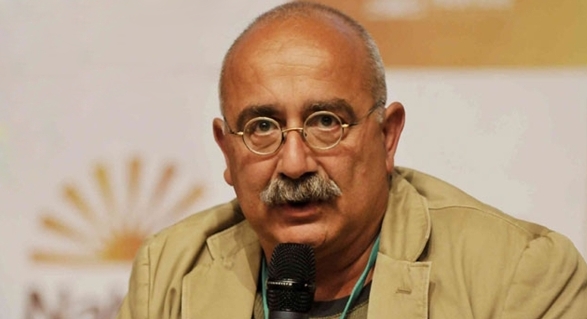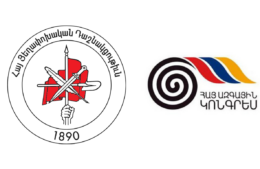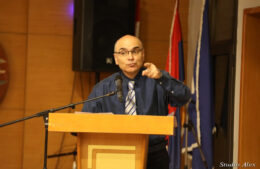ECHR Ruling doesn’t mean an “End” to Genocide Denial Criminalization: Dr. Sévane Garibian
- (0)
ECHR Ruling doesn’t mean an “End” to Genocide Denial Criminalization: Dr. Sévane Garibian –
On the final judgment of the Grand Chamber of the European Court of Human Rights (ECHR) on Perincek vs Switzerland case Panorama.am has spoken with Dr. Sévane Garibian – Legal Scholar, Professor at the Universities of Geneva and Neuchâtel (Switzerland)
– Dr. Garibian, what are the legal implications of the ECHR Grand chamber’s verdict on Perincek v. Switzerland case in terms of criminalization of genocide denial in future? Does the Court’s ruling that Mr Perinçek’s rights under Article 10 were violated mean that States cannot outlaw genocide denial?
– Nothing in this ruling permits to affirm that it is, in Europe, “the end” of the criminalization of genocide denial in general, or that of the Armenian genocide denial in particular. The Court acknowledges the diversity of national solutions on the matter and notes the lack of consensus among the High Contracting Parties. National positions in this large spectrum relate, after all, to the margin of appreciation and sovereign competence of each State. The Court does not determine whether the criminalization of the denial of genocides or other historical facts may in principle be justified – even though the Court, actually, does so regarding the denial of the Holocaust exclusively, in Europe. In any case, the Court’s assessment is case-specific and depends on each context. It does not have any absolute value.
It is important to bear in mind, for the future, that this judgment confirms the importance and the need of the evidence of incitement to racial hatred and discrimination through the litigious statements, analyzed in their specific context. This element is not new, but its assessment is, as we see in this case, quite relative and subjective.
– What points in the decision are favorable for the Armenian side and can be used for furthering the recognition and condemnation of the Armenian Genocide?
– The Grand Chamber does not use the Chamber’s problematic argument according to which there is no “general consensus” on the legal qualification of genocide in the Armenian case. Therefore Turkey cannot refer to such an argument legitimately in the future. The Court points out that it has neither obligation nor authority to determine whether the “massacres and mass deportations suffered by the Armenian people at the hands of the Ottoman Empire from 1915 onwards” could be characterized as genocide. In any case, I should add that such legal characterization was not even necessary, since the Swiss law (article 261bis §4 of the Criminal Code) criminalizing denial, gross trivialization or justification, refers to “genocide or other crimes against humanity”.
Another interesting point is that the judgment has been voted with a very short majority, by ten votes to seven (there is also a partly concurring and partly dissenting opinion by the German judge, as well as an additional dissenting opinion by four judges). The joint dissenting opinion of seven judges includes that of the president and vice-president of the European Court. All seven dissenting judges, while confirming that the legal characterization of the events of 1915 was not the question here, firmly acknowledge “the fact the massacres and deportations suffered by the Armenian people constituted genocide is self-evident. The Armenian genocide is a clearly established historical fact. To deny it is to deny the obvious”.
Also, the Grand Chamber recognizes that “the hostility of some ultranationalist circles in Turkey towards the Armenians in that country could not be denied” (referring notably to the Hrant Dink case). But it does not link this situation to the present case. Finally, one may recall that the Court considers the protection of the dignity of the victims (the ancestors) and the dignity and identity of “present-day Armenians” (by Article 8 of the European Convention, on the right to respect for private life) as being a “legitimate aim”. It is unfortunate, though, that the Court does not also take into consideration the universal aspect of the issues related to mass crimes and their denial. I also believe that the judgment contains some questionable or problematic arguments and assessments.
– What are the setbacks of the judgment that you would highlight?
– The most problematic points are found in the argumentation of the majority of the Grand Chamber related to the absence of necessity to subject M. Perinçek to a criminal penalty. It is this “lack of necessity” that led the Court to the conclusion that the applicant’s freedom of expression was violated. I would underline three questionable points in particular: 1. the appreciation of the nature of Dogu Perinçek’s statements; 2. the evaluation of the racist motive in the light of the specific context (itself being determined by debatable factors); 3. and the differentiation in principle (automatic differentiation) with the Holocaust denial. The Court’s assessments regarding these three points are also the ones being challenged and flatly criticized in the dissenting opinions.
– In this case is it correct to define this decision as either a victory or a failure for us?
-In my opinion the judgment is neither a great victory nor a big failure. A nuanced approach is certainly more appropriate.
Interview by Nvard Chalikyan



















